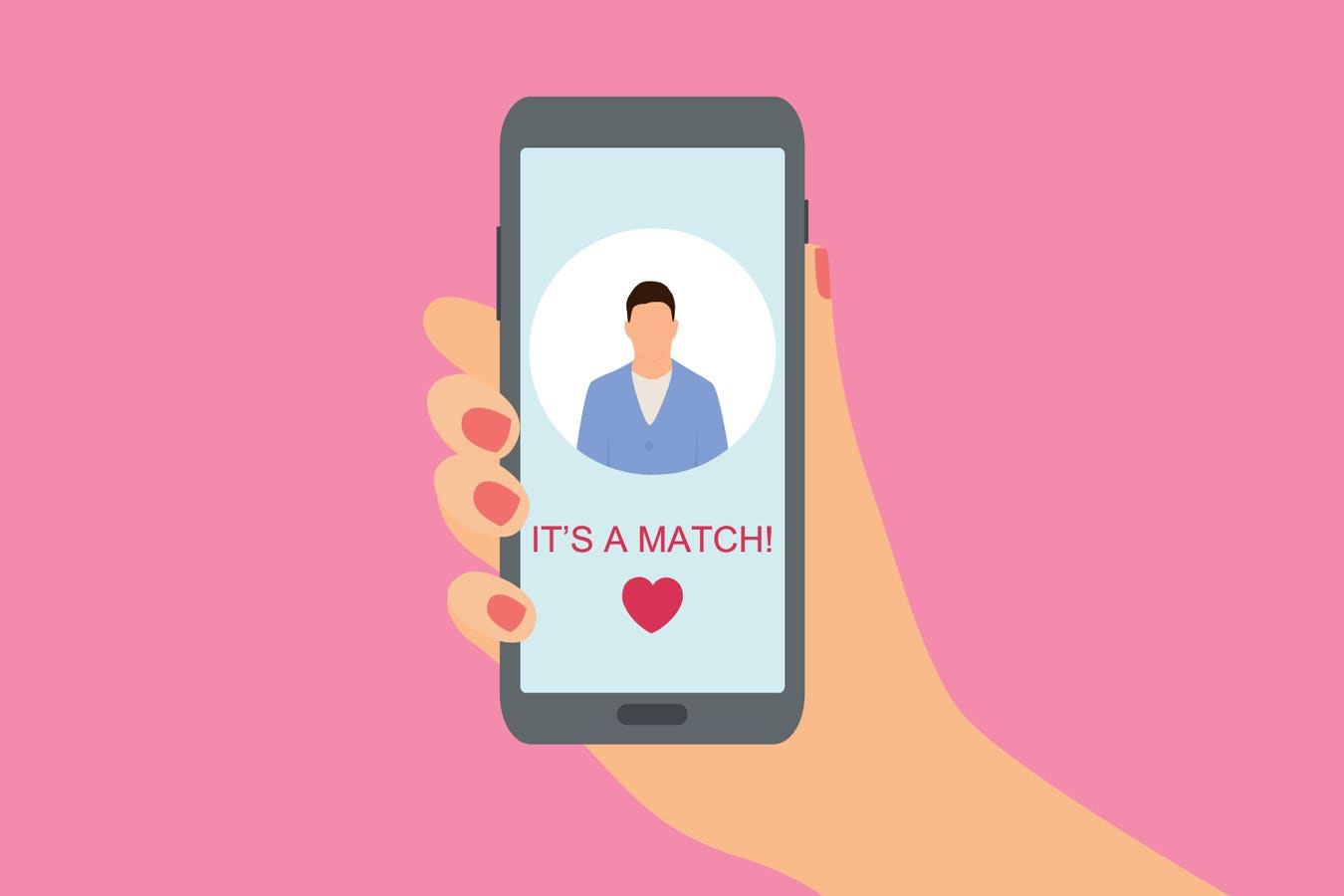Are flaws the new flex? Gen Z might just be flipping the dating game on its head with “reverse catfishing.” Here’s what research says about why this shift is happening.
getty
Whether we realize it or not, we are now living in a world of constant performance. Day by day, it’s becoming harder to tell where reality ends and performance begins. Social media and dating feeds are polished to perfection, with filters helping us smoothen out flaws. And now with AI in the picture, there’s a higher chance of even more fabricated personas.
In a 2019 TEDMED talk, psychologist Dr. Thomas Curran spoke about the rising tide of perfectionism among young people and how it’s assumed to be a badge of honor that many people proudly carry. He warns that socially prescribed perfectionism, the feeling that others expect you to be flawless, has doubled in recent decades. This has ultimately fueled anxiety, depression and burnout.
In a culture where self-worth is measured by likes and rankings, it’s no wonder that even dating has turned into another stage for performance. People may present a version of themselves far from reality, and the overwhelm and disappointment from this lack of authenticity in the dating culture has culminated in a new dating trend.
What Is ‘Reverse Catfishing’?
The latest trend of “reverse catfishing” shows that Gen Z is now choosing to value authenticity over performance in terms of finding a partner.
Reverse catfishing refers to deliberately underselling yourself online in the hope of finding something more real. It’s quite literally the opposite of catfishing, which involves presenting a false version of yourself and sometimes even a completely different identity online, usually with the aim to attract romantic interest.
When picking and choosing a mate depends so heavily on superficial digital cues, it’s natural for a handful of photos, a short bio or a witty prompt response to feel of the utmost importance. It’s only natural that people might feel the pressure to “market” themselves well.
After all, the first step to even exploring a connection for many often depends on how effectively you can catch someone’s eye online.
But this raises an important question. Is putting forward a polished or almost “branded” version of yourself really helping? While it may win you more swipes or likes, it doesn’t necessarily translate into deeper compatibility or authentic connection.
In fact, for many, it can set the stage for disappointment and unmet expectations that feel exhausting over time.
Rising Dating App Fatigue
Primarily, dating apps were designed to make finding a partner feel effortless. However, the truth is that for many, the experience has become exhausting.
A 2024 Forbes Health/OnePoll survey of 1,000 Americans found that 78% of dating app users reported feeling some kind of burn out, and it’s highest among younger generations. Precisely, 79% of Gen Z and 80% of Millennials.
Common triggers included repetitive conversations, rejection and the pressure to present oneself perfectly. Dishonesty on profiles, such as lying about age, income or hobbies, was reported by one in five users. Experiences like catfishing and ghosting further contribute to fatigue.
This leaves many users disillusioned with digital dating and pushes them toward reverse catfishing in pursuit of less performative connections.
Bridging Online And Offline Attraction
With dating apps, first impressions often happen digitally. While this can generate interest, it can also lead to a mismatch between online perception and real-life interaction. This is where reverse catfishing can play a crucial role.
A 2019 study investigated how different online communication modes affect attraction before a first face-to-face meeting. Researchers had 39 participants engage in a round-robin speed-dating experiment.
Their initial interactions were either text-based or via videoconferencing. Afterwards, all participants met in person. The study aimed to examine how these “modality switches” influenced perceptions of social and romantic attraction. They also examined whether online impressions carry over when moving offline.
The findings showed that text-based interactions produced higher levels of perceived social attraction compared to videoconferencing. However, after meeting face-to-face, while social attraction persisted, romantic attraction declined. This clearly suggests that idealized online self-presentation can inflate social impressions but may create disappointment when offline reality does not match expectations.
These findings underscore the importance of authenticity in online dating. Reverse catfishing might help ensure that the positive impressions formed online translate into real-world interactions.
Reclaiming Agency By Managing Your Online Presence
Intentionally downplaying appearance by using unfiltered photos or presenting themselves more modestly than in real life can help users filter out people who are only interested in surface-level attraction.
This approach challenges the swiping-driven culture that prioritizes looks over personality. In a way, it also helps manage expectations by presenting a more authentic version of oneself and can even serve as a subtle safety measure by deterring unwanted attention.
In essence, reverse catfishing can act as a tool to counter many of the frustrations and risks experienced by dating app users.
A 2024 study published in the Journal of Gender, Culture and Society explored why women experience dissatisfaction with dating apps.
The researchers conducted in-depth Zoom interviews with 40 women from diverse backgrounds. These interviews were then transcribed and the conversations were analyzed thematically to uncover common patterns and challenges.
The findings revealed overwhelmingly negative experiences, with 95% of participants reporting disappointment and frustration when using dating apps, citing a lack of serious intentions and genuine connections.
Around 60% described feeling unsafe, encountering harassment or being catfished, highlighting critical safety concerns on these platforms.
One participant, a 26-year-old Moroccan woman living in Turkey, explained, “My experience using dating apps wasn’t the best; I started using dating apps during the pandemic and after it. I talked to a lot of people, but I have never had deep and interesting conversations except for one time. I went on 8 dates with different people, but they were all horrible, and I have never met them again. It wasn’t fun and filled with disappointment.”
These findings show that dissatisfaction on dating apps reflects a systemic issue where superficiality and inflated expectations dominate the online dating landscape.
In this context, reverse catfishing emerges as more than a quirky trend; it’s more a deliberate strategy to reclaim control. You get to feel a sense of autonomy by setting unsaid authentic boundaries and encouraging deeper interactions. It may also offer a subtle form of resistance against a platform culture that often prioritizes looks above all else.
Rediscovering Connection In the Digital Age
Paradoxically, a world designed to make us feel more connected can leave many people experiencing more loneliness. Dating apps can create a sense of constant availability and interaction. Despite that, these “connections” often feel superficial. Swipes and performative conversations can’t replace laughter over coffee, shared experiences or meaningful conversations.
Real connection requires depth and authenticity. To increase the possibilities of finding real connections online, there needs to be a mindset shift that encourages intentionality and self-awareness.
Start by reflecting on your own dating goals: are you seeking casual interactions, meaningful connections or long-term compatibility? Instead of trying to become the ideal version of yourself for others online, focus on showcasing your authentic personality. That could begin with you sharing your true hobbies and quirks, even those that might not be considered “cool” by societal standards but genuinely interest you.
This way, you attract people who value who you really are, rather than just how you look.
Given the rise of fatigue and overwhelm from dating apps, it’s also important to remember to set mindful digital boundaries. Decide when and how often you engage with these apps and be intentional about which conversations deserve your energy. Find a way to limit endless swiping or late-night chats that drain you emotionally, and resist the pressure to respond immediately.
While dating apps may be a dominant force currently, don’t forget the old-school ways of dating and building connections. Attending social gatherings, trying out group activities based on your interests or even meeting friends of friends can help provide offline platforms for cultivating deeper bonds that no algorithm can replicate.
A reminder we all need sometimes is that life happens outside of our screens. Often, the connections we truly seek may already be around us; we just need to shift our focus beyond the screen to notice them.
Are you overusing dating apps? Take this science-backed test to find out: Problematic Tinder Use Scale









